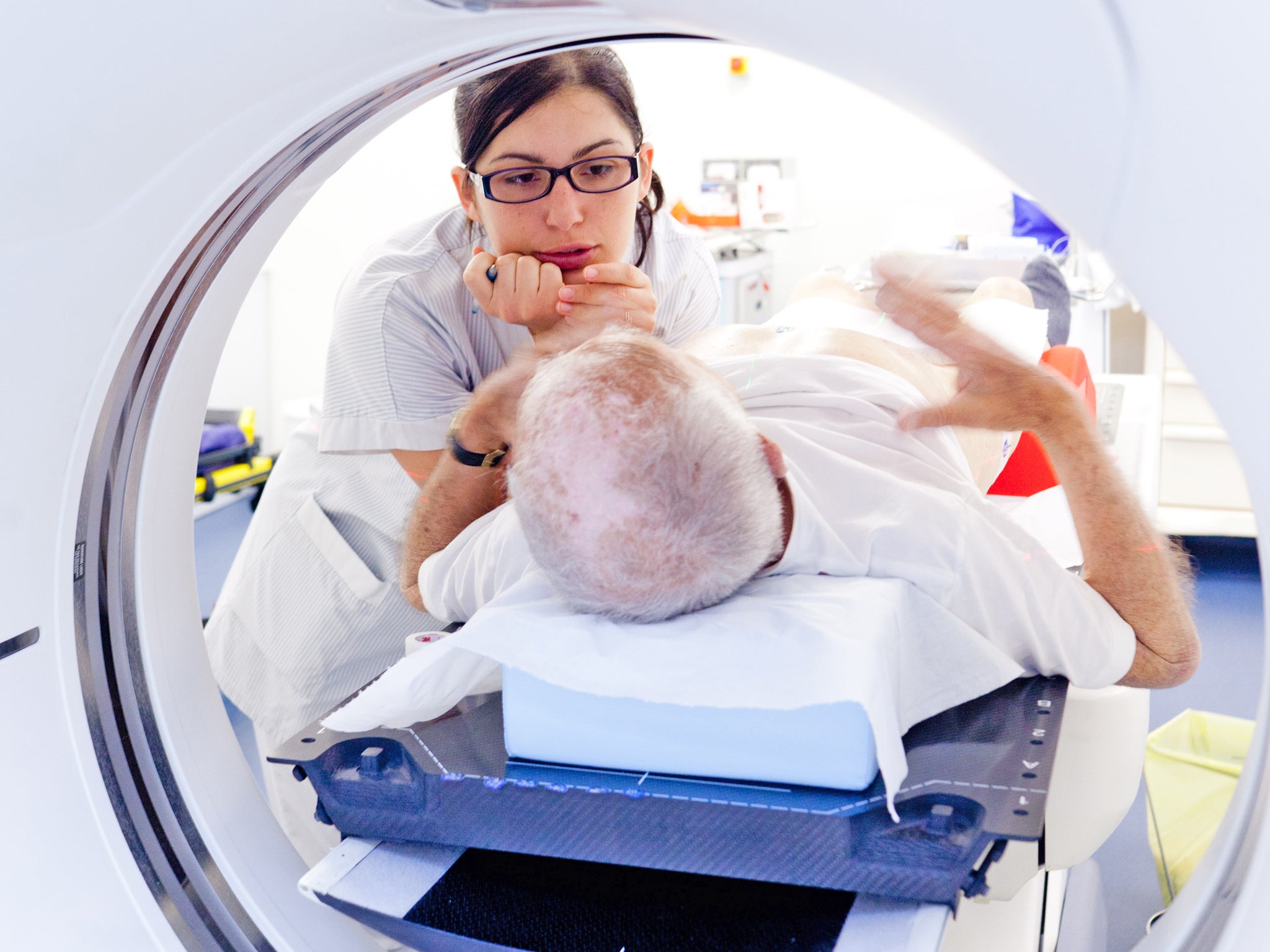Cancer treatment breakthrough? Scientists reveal hope for protecting patients from radiotherapy and chemotherapy
Drugs shield sensitive gastrointestinal tract from toxic effects

Your support helps us to tell the story
From reproductive rights to climate change to Big Tech, The Independent is on the ground when the story is developing. Whether it's investigating the financials of Elon Musk's pro-Trump PAC or producing our latest documentary, 'The A Word', which shines a light on the American women fighting for reproductive rights, we know how important it is to parse out the facts from the messaging.
At such a critical moment in US history, we need reporters on the ground. Your donation allows us to keep sending journalists to speak to both sides of the story.
The Independent is trusted by Americans across the entire political spectrum. And unlike many other quality news outlets, we choose not to lock Americans out of our reporting and analysis with paywalls. We believe quality journalism should be available to everyone, paid for by those who can afford it.
Your support makes all the difference.Scientists may have found a way of protecting cancer patients from the lethal effects of radiotherapy and chemotherapy using drugs that shield the sensitive gastrointestinal tract from the toxic effects of the treatment.
Strong radiation or chemotherapy can destroy metastatic cancers that have spread around the body but these aggressive treatments can end up killing patients by damaging the sensitive lining of their gut, scientists said.
A study on laboratory mice, however, has shown that two relatively simple molecules, called R-spondin1 and Slit2, bind to the guts' stem cells and in doing so protect them against the harmful side-effects of anti-cancer therapy, said Professor Jian-Guo Geng of the University of Michigan.
"All tumours from different tissues and organs can be killed by high doses of chemotherapy and radiation, but the current challenge for treating the later-staged metastasized cancer is that you actually kill the patient before you kill the tumour," Professor Geng said.
"Now you have a way to make a patient tolerate to lethal doses of chemotherapy and radiotherapy. In this way, the later-stage, metastasized cancer can be eradicated by increased doses of chemotherapy and radiation.
"It's our belief that this could eventually cure later-staged metastasized cancer. People will not die from cancer, if our prediction is true," he said.
The scientists found that between 50 per cent and 70 per cent of the mice treated in the study survived a lethal dose of chemotherapy. None of the mice that had not received the protective molecules survived the same dose.
The study, published in the journal Nature, still has a long way to go before the treatment can be tried on people, but the scientists believe that the same fundamental principles apply to human gut stem cells which ensure the absorption of nutrients and prevent the release of bacterial toxins in to the bloodstream.
"If you can keep the gut going, you can keep the patient going longer. Now we have found a way to protect the intestine. The next step is to aim for a 100-percent survival rate in mice who are injected with the molecules and receive lethal doses of chemotherapy and radiation," Professor Geng said.
Professor Owen Sansom, deputy director of Cancer Research UK's Beatson Institute, said that Professor Geng and his colleagues have made an intriguing discovery given that the toxic effect of chemo- and radio-therapy on the digestive system is one of the main reasons why doses cannot be raised to increase the chances of a cure.
"But this research was only carried out in mice, and - crucially - didn't show whether the method used would have any effects on cancer cells, which are also thought to be driven by stem cells. So, while these findings are a useful blueprint for how we could focus future effort to protect cancer patients' digestive systems, this exciting prospect is still a way off yet," Professor Sansom said.
Join our commenting forum
Join thought-provoking conversations, follow other Independent readers and see their replies
Comments